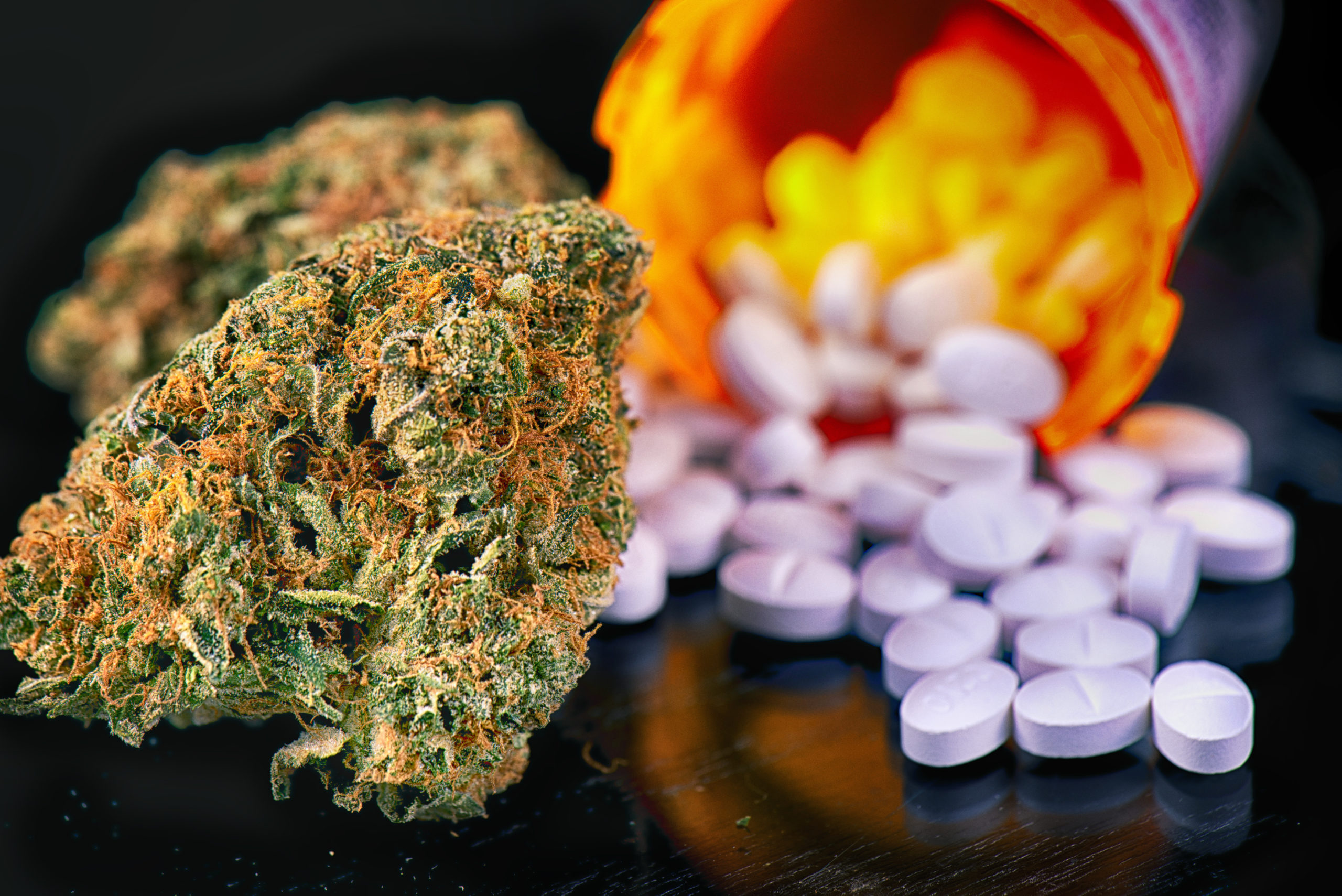We all know about the tremendous damage that painkillers can have on someone battling a dependency. But imagine how much more it can be magnified when you involve other substances. Recently, a study was released that explored the dangers around combining opioid and marijuana use. And, truth be told, the consequences were alarming.
The interesting thing is, some people tend to make a logical connection between these two drugs. Both have been discussed in conversations involving pain relief, but when taken in tandem they can create heightened feelings of depression and anxiety.
According to The Journal of Addiction Medicine, the blend of these substances actually did little alleviate pain symptoms. Instead, they led to serious mental health issues that severely impacted people’s lives. Not only that, people who used both of these drugs quickly escalated into alcoholism and cocaine abuse.
“Results suggest that, compared to opioid use alone, opioid and cannabis co-use was associated with elevated anxiety and depression symptoms, as well as tobacco, alcohol, cocaine, and sedative use problems, but not pain experience,” the Journal study authors wrote. “These findings highlight a vulnerable population of polysubstance users with chronic pain, and indicates the need for more comprehensive assessment and treatment of chronic pain.”
Marijuana has often been classified as a “gateway drug” and a substance that can lead to harsher narcotics. So it is not surprising to hear opioid users may evolve from cannabis to something like alcohol or cocaine.
But let’s not forget the serious overdose risks associated with opioids. Bringing any type of additional substance into that equation can certainly have severe consequences, ultimately leading to more fatalities if trends like this are left unchecked.
Interestingly, several doctors across the country have called out marijuana as an alternative to opioids for those suffering from chronic pain. But that too can be a slippery slope, as users may ultimately get access to both (through illicit means) and put themselves at real risk of a mental breakdown or an overdose.
“Given the fact that cannabis potentially has analgesic properties, some people are turning to it to potentially manage their pain,” the study authors added. “There’s been a lot of buzz that maybe cannabis is the new or safer alternative to opioids, so that’s something we wanted to investigate. And we are seeing real risks involved with that.”

Detail of cannabis buds and prescriptions pills over reflective surface - medical marijuana dispensary concept






